MAY 1
HEALING HEART AND MIND
Admitted to God, to ourselves, and to another human being the exact nature of our wrongs.TWELVE STEPS AND TWELVE TRADITIONS, p. 55
Since it is true that God comes to me through people, I can see that by keeping people at a distance I also keep God at a distance. God is nearer to me than I think and I can experience Him by loving people and allowing people to love me. But I can neither love nor be loved if I allow my secrets to get in the way. It’s the side of myself that I refuse to look at that rules me. I must be willing to look at the dark side in order to heal my mind and heart because that is the road to freedom. I must walk into darkness to find the light and walk into fear to find peace. By revealing my secrets—and thereby ridding myself of guilt—I can actually change my thinking; by altering my thinking, I can change myself. My thoughts create my future. What I will be tomorrow is determined by what I think today.I Confess
I was baptized a Catholic and subsequently all of my education, save two years at San Francisco State, was at Catholic schools. I am semi-gregarious so I did make a few friends. In fact, eight of us are all still fairly close and text message something, almost every day.
The Text Message thread that got started about where to park for a funeral. The funeral was for a friend that was very close to all of us. In fact, he was the Best Man at six weddings in that group. Anyway, from then on, that text thread kept going and still is today, almost 20 years later. So in honor of the guy, Gino, lets call it Gino’s Group or the GG.
Now here is a characteristic of the GG. All the contributors are Catholic, most went through the same experience I did, attending all Catholic schools. So how many practicing Catholics do you think are in the Group? How many, despite going through Catholic rituals of marriage, funerals and even sending our kids to Catholic school believe in God as it was taught at those schools, today?
None. At least that would be my bet.
In that group of eight guys, three of us are practicing members of AA. Two others should be. One guy really had a problem with cocaine many years ago, self-recovered and now he will drink a glass of wine now and then. And two guys never drank or indulged in anything that much and are in terrific shape today. So, it’s a diverse group.
I believe we are influenced by our environments and had they all been devout Muslims, I probably would be at least a Muslim today. That’s how I justify my decent into drug use, they made me do it. I blatantly blame them for that. Liking it as much as I did, well, that’s on me. So is alcohol. Me and one of the others introduced everything beyond a Coors beer to everyone else .
But I am drifting off point.
What I find remarkable is that lack of organized religion in all of our lives. Not all, but most of us still go through some of the religious ceremonies. Performance rituals, like putting a few spiritual chips on the Come and Don’t Pass Line to Eternity or just for Luck. But none of us that I know, go to church regularly. We discuss religious and moral issues. Sometimes getting in deep and heated, but most often changing the subject before it gets there. The three of us in AA, we talk about God, Higher Power, Supernatural forces of Good and Evil, but I wonder how much we all truly believe in all of it.
There are a couple guys in the group who treat Climate Change politics like a religion. Seriously. And if one is skeptical, as I am, not only will I suffer the collapse of Earth in like ten years, but my soul is damned for Eternity because of a styrofoam cup I got at the Chic Filet. Curiously, they are also Dodger fans. Coincidence?
I am grateful to AA because at least now, from time to time, I do think about religion and all that goes with it. When I was drinking and using, I only cussed. The more I drank and used, the more I cussed and that was about as spiritual as I got.
I will not give you a litany of my transgressions. I’ve done the formal sit down Step Five with someone twice, and my present sponsor and I have a running conversation. I’m going to say this though, if I did tell you about all those dumb ass things I did, I would also tell you that my part in them was because I had lost touch with some kind of religion, organized or not.
I know I am getting long here so one more parable and I will close.
I have a niece and she is very much anti Food Bank. I ask her why. She tells me because its run by Catholics who from time to time invoke their religion onto the needy when giving out the food. I ask why do you care? I don’t think that the recipients care. And a little message here and there to lead a good life, how can that be a bad thing? Because they are a religion, she says.
Okay, but I think about us in AA. I think through the program, we are given the message to lead a good life. To do the right thing. I don’t think that is a bad thing to hear or remind ourselves to do it, whether we call it God or a Higher Power or Marv, Mark, Danny or Mike et al. It’s a gift.
Contributed by John M.
My First Meeting

Please be “of service.” If you’ve never contributed a “My First Meeting”, please help to keep this column going…we need you! What do you remember most of your first meeting? It can be one sentence; it can be up to two paragraphs. Could be funny, poignant or strickly “clinical”. Write what you want…you might have enjoy writing it!
May Birthdays… IF They Make It!
May 16th… Dan T. celebrates 6 years
May 17th… Steve H. celebrates 33 years
May 18th… David K. celebrates 16 years
May 23rd… Jeremy B. celebrates 16 years
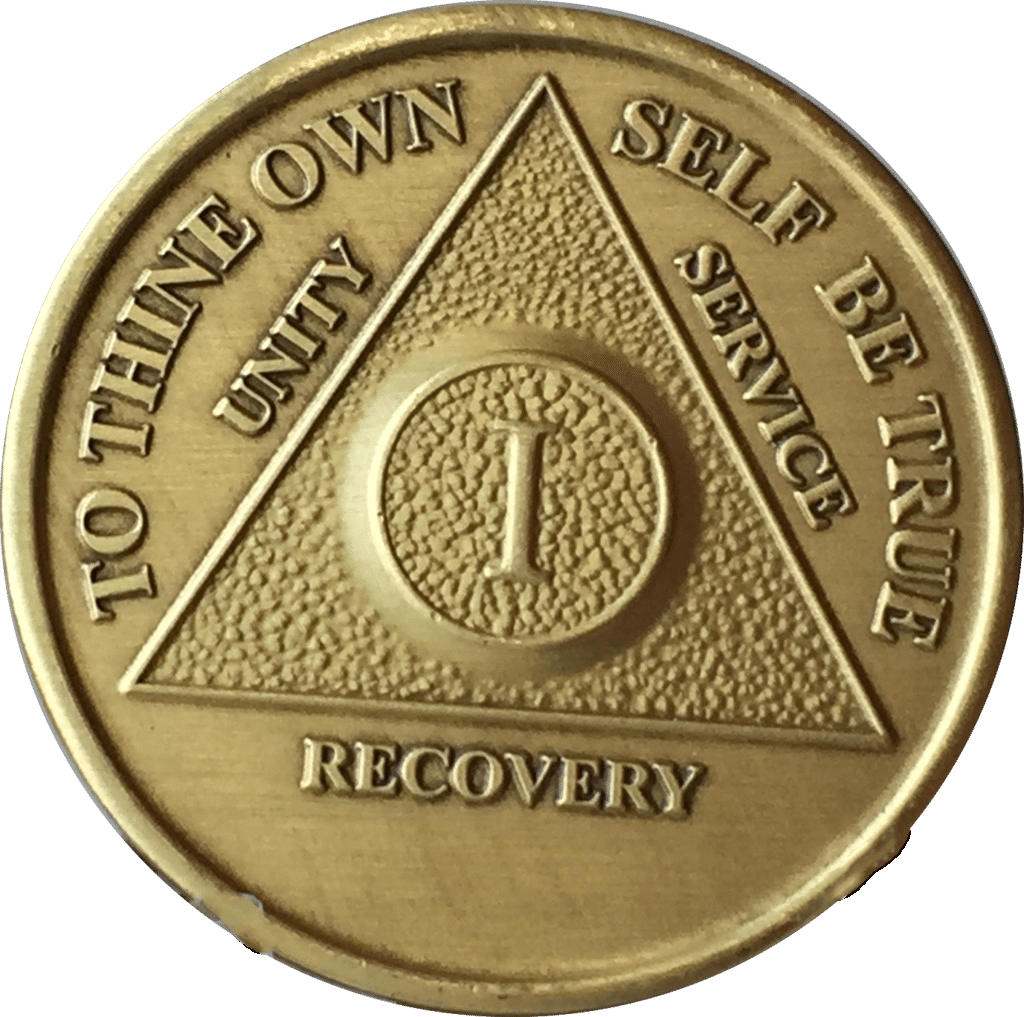

If your birthday has been missed…. fill out the birthday form.
We really want to celebrate your AA anniversary because your birthday made ours possible!
Thanks everybody and apologies to you if you were missed or incorrectly noted.
First Wednesday… May 4th

Come join a review of Step 5 on May 4th (First Wednesday). “Admitted to God, to ourselves, and to another human being the exact nature of our wrongs.”
John reviews the step corresponding to the number of that month on each first Wednesday. It’s a rewarding meeting with John outlining the step of the month, how he was challenged by it and how we tackle it ourselves, with and without success! Look for his monthly contribution in this edition!
THE LITERARY CORNER:
Why Do Writers Drink So Much?
What has led so many writers to drink, and drink excessively?

Alcohol (and alcoholism) has been a defining feature of literary life in this country, with some research showing a clear link to writing and drinking that may be neurologically based. In her 2014 The Trip to Echo Spring, Olivia Laing examined the role that alcoholism played in the lives of six American writers (John Berryman, Raymond Carver, John Cheever, F. Scott Fitzgerald, Ernest Hemingway, and Tennessee Williams), finding deep, psychological connections between their respective addictions and creative genius.Some twelve writers were even under the influence while they worked. Edna St. Vincent Millay wrote her 1921Vanity Fair essays while sipping gin, William Faulker’s 1936 Road to Glorywas whiskey-infused, Carson McCullers penned her 1940 The Heart is a Lonely Hunter with copious amounts of hot tea and sherry; Raymond Chandler relied heavily on gimlets (and vitamin shots) to produce his 1946 The Blue Dahlia, and Capote gulped down double martinis when working on his 1965 In Cold Blood. The Beats, meanwhile, preferred drugs to alcohol, and created some of their best material while using Benzedrine, heroin, and psychedelics.
Even some of the biggest winners in the history of American writing had personal demons, of course, with large quantities of alcohol often used to try to exorcise them. Other countries had their fair share of literary drunks, but writing and drinking were almost synonymous in 20th century America. Booze “has come to seem a natural accompaniment of the literary life,” wrote Alfred Kazin in Commentary in 1976, a symbol of the profession’s “loneliness, creative aspirations, and frenzies.” It was often not discussed, but a look back at the relationship between writing and drinking in the United States beginning with Edgar Allen Poe was not at all pretty. (Much less attention was paid to writers’ frequent habit of smoking, although tobacco might very well have killed more of them than did alcohol.) Sinclair Lewis, Eugene O’Neill, and William Faulkner (who together comprised a full half of the six Americans who had won the Nobel Prize in fiction up to that point) were either alcoholics or compulsive drinkers for much of their lives, and both Hemingway and Steinbeck each hit the bottle hard. The list seemed to go on and on. Fitzgerald and Ring Lardner were alcoholics (and each died in their forties), as were Jack London and John Berryman (each a suicide). Hart Crane had a drinking problem (and killed himself), as did J.P. Marquand, Wallace Stevens, E.E. Cummings, and Edna St. Vincent Millay. Some writers, including London, Dorothy Parker, and Dashiell Hammett wrote about their respective drinking problems, while most did not.
What led so many writers to drink, and drink excessively? It was “the drive for success of every kind,” Kazin proposed, “the hunger for prestige, fame, and money” in conjunction with “the burden put upon the creative self.” One psychiatrist actually did a study to try to figure out why so many great American writers drank like fish. Donald W. Goodwin of Washington University argued that there could be a genetic link between writing ability and alcoholism, with manic-depression perhaps the common thread. Fitzgerald, who was the poster child for the image of the imbibed author (he called alcohol the “writer’s vice” and was known to introduce himself as “F. Scott Fitzgerald, the well-known alcoholic”), appeared to suffer from the condition. There are any number of other possible reasons for the close relationship between writing and drinking, however, including the need to bring out exhibitionism, increase sociability, encourage fantasy, bolster self-confidence, ease loneliness, or, most simply, relax after a long day of hard concentration.
Originally from Psychology Today
Funny Papers

Tradition 5
Short Form:
“Each group has but one primary purpose—to carry its message to the alcoholic who still suffers.”
Long Form:
“Each Alcoholics Anonymous group ought to be a spiritual entity having but one primary purpose—that of carrying its message to the alcoholic who still suffers.”
We Only Have One Purpose
It is the great paradox of A.A. that we know we can seldom keep the precious gift of sobriety unless we give it away. This Tradition delineates pretty clearly our individual primary purpose, as well as the group’s. Each of us is but a small part of the whole, but by joining AA’s primary purpose to our own, we become something bigger than our individual selves.
Am I willing to surrender my old primary purposes?
To work this tradition means that I am willing to say “yes” to this question and rearrange the rest of my priorities. Devoting myself to a new primary purpose means that I am willing to let go of many old ideas. I have many thinking patterns that are automatic that I need to change in order to consecrate myself to a new primary purpose.
Step-Tradition Parallel
The relationship of the fifth step to the fifth tradition is that the fifth step taught me the exact nature of my wrongs, “I’m not in charge.” In the fifth tradition I learned just the opposite, I learned what my exact nature should be: my talent to carry the message to the alcoholic who still suffers, my primary purpose.
In the fifth step I learned what’s wrong about me and in the fifth tradition I learned what’s right about me. What’s right about me is my ability to carry the message when no one else can because of the experiences that I have had which were transformed into a message of hope in the fifth step. My alcoholism is my greatest talent, not my talents as a husband, father, son, or my job. I can fulfill my primary purpose for being born by carrying the message to the alcoholic who still suffers.
Inspired by George T.
“Mouse’s Corner”

A.A. member Dave Mc. curates a few selected readings from a variety of A.A. related publications each month. Dave is a life long friend of the editor and has been sober 34 years. His childhood nickname was “Mouse!”
“My biggest problem at that time was to drink enough to keep the reality of my life at bay.”
Alcoholics Anonymous 4th Edition, pg 440 “My bottle, my resentments and me.”
“Maintaining my spiritual condition is like working out every day, training for a marathon or swimming laps. It’s staying in good shape spiritually and that requires prayer and meditation.”
Daily Reflection “God”
“Easy does it, relax a little.”
Alcoholics Anonymous 4th Edition, pg 357 “It might have been worse.”
Contributed by Dave Mc.
Treasurer’s Report
The first “official” Treasurers Report of new Treasurer Mark W. was presented Wednesday, April 27th at the meeting of that morning at 11:30. The report was delivered at the firm insistence of General Secretary John M.
Actual treasurer duties began approximately March 17, 2021, when new officer Mark W. took possession of funds from past General Secretary Tom W. after the passing of our late and great friend Dan Mc.
The details of what was presented that morning are included here. Going forward it will be a goal, in future editions, to include a link where members may view the report with any indicated updates. “Any suggestions or comments are welcome any time”, the treasurer stated with some reluctance.
Treasurer’s Report Dated April 25, 2022
Beginning Balance March 17, 2021 : $4729.00 Deposited from the Dan Mc. Account
Total Expenses to Date:
| Rents: | |
| $300 St. Francis | |
| $450 Tim C. | |
| IT Maintenance | |
| $600 Mark C. |
Collections/Donations: $1189.00
(Since March 17, 2021)
Balance to Date: $4308.00
Our Trusted Servants Continue to Be:
The current Step 2 Men’s Group meeting schedule can be found here. Each of the gatherings is one hour. Great job men!
- Monday: Tim C.
- Tuesday: Mark W.
- Wednesday: John M.
- Friday: Brad W.
- Saturday: David K.
Want to add your name to the “Back-up-Help-Substitute Secretary List”? Just contact Group GS, Tom W., Treasurer Mark W. or any Monday through Sunday Secretaries and let them know!
Step 2 Men’s Group Believes…
“Came to believe that a Power greater than ourselves could restore us to sanity.”
We’d never presume that the 12 Steps are not clear. Nor would we imply that they need ‘improvement’. However…for purposes of assisting to keep the meeting pointed in an important direction each day, the ‘Step 2 Men’s Group statement is read as follows:
Step 2 Men’s Group is founded on the belief that spirituality is essential to our sobriety. Our group is non-religious, but we do not oppose anyone’s religious beliefs. We believe that respect for others and their beliefs is essential to our spiritual development. Accordingly we ask that avoid criticism of others or of their religion or lack of religion, their race, ethnicity, national origin, age, sexual orientation, physical appearance, trade or profession, length of sobriety, or personal beliefs. Our goal is to further our spirituality, our sobriety and our personal development, not to confront or belittle others. Always remember to be kind to others.
Extra Special Thanks Dept:
Thanks to John M. for “I Confess”, Dave Mc. for “Mouse’s Corner.” , Anthony S. for the ‘Joke Box’ and thanks to Mark W. for the remaining content. We’re still waiting for YOU gentle reader…Why don’t YOU contribute a short “something?” Any length, most any AA related topic. Reply now and it will get included next month!




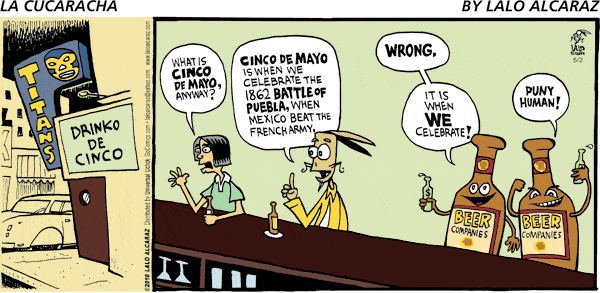
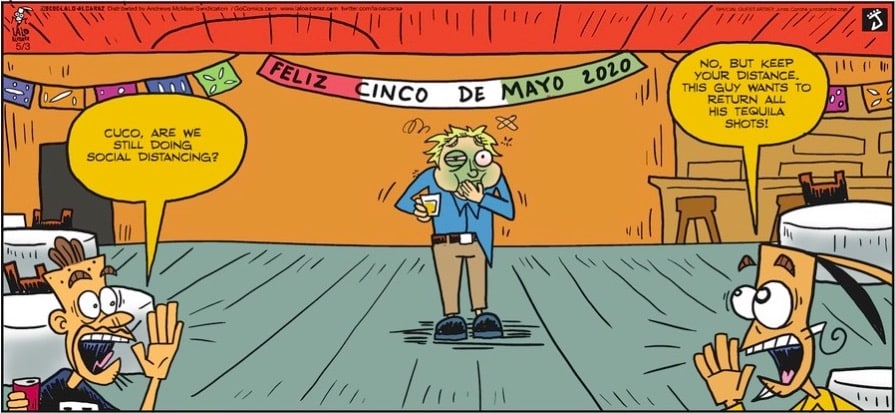
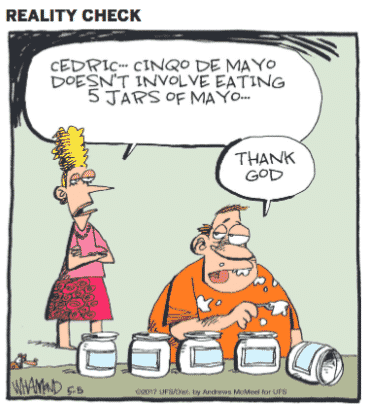
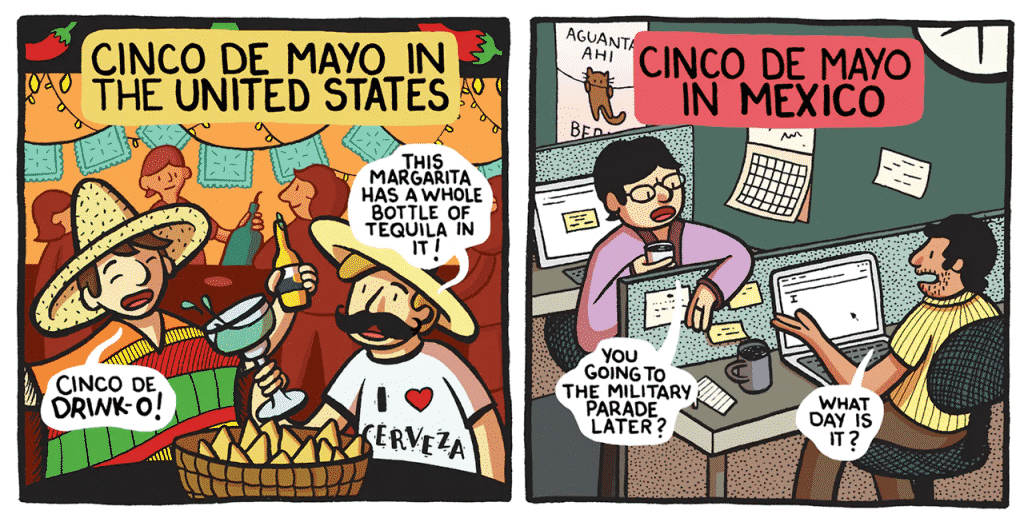
 Men’s Gazette – April 2022
Men’s Gazette – April 2022 Men’s Gazette – June 2022
Men’s Gazette – June 2022